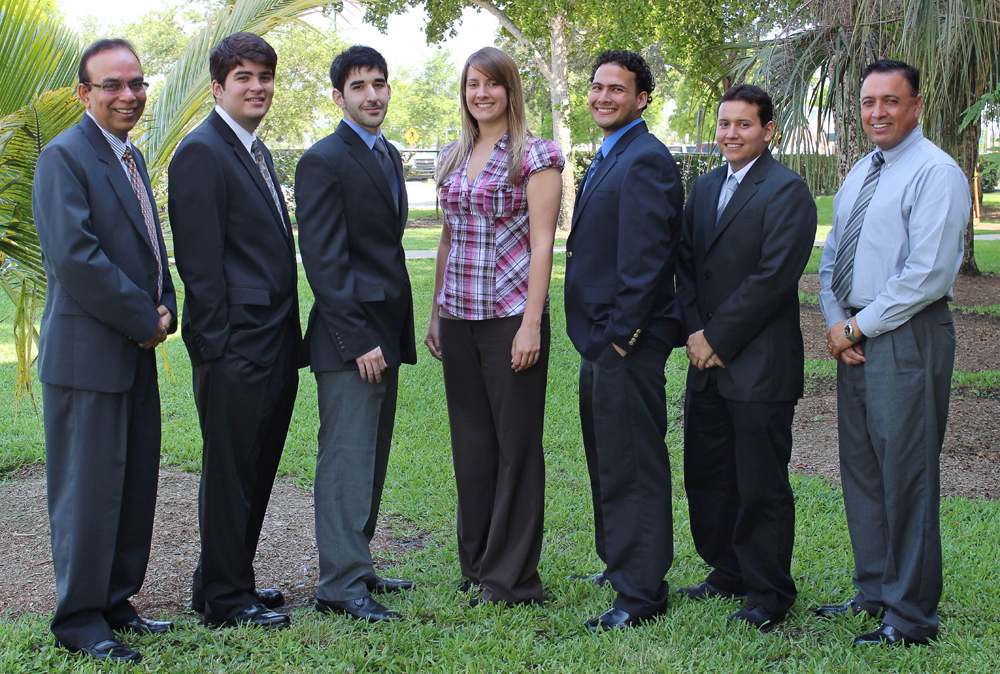By Amy Ellis
In the next few months, FIU researchers will be doing their part to prevent the kind of high-tech cyberattacks that could cripple financial institutions, disable major infrastructure or threaten national security.
The Department of Defense plans to provide seed funding of $150,000 to FIU’s Applied Research Center (ARC) to launch a cybersecurity test technology program. The project’s goal is to develop new technology to help thwart cyberattacks and cyberterrorism.
“There are a lot of really smart people working to prevent these kinds of attacks but there are many others working just as hard on things we may not have even thought of yet,’’ said Leonel Lagos, director of research for ARC. “The goal is to develop state of the art test technology that can decrease our exposure to hacking and cyberattacks.’’
The agreement is a pilot project with the DOD’s Test Resource Management Center (TRMC), the agency that oversees DOD’s test infrastructure, and invests in technologies to test new military equipment, from fighter aircraft to computers, before it is deployed.
The program includes four FIU student internships to be located at the Point Mugu Naval base in Southern California and two FIU student internships at Georgia Tech Research Institute in Atlanta.

Six FIU students were selected to participate in cyberspace internships at Point Mugu Naval Base in Southern California and Georgia Tech Research Institute in Atlanta. From left to right, Himanshu Upadhyay, ARC IT program lead, Christopher Lopez, Jon Carvajal, Tiffany Arrazola, Steven Lopez, Michael Garcia and Dr. Leonel Lagos, director of research for ARC.
Lagos said FIU already has some researchers pursuing cybersecurity technology but the new initiative will allow scientists to step up their efforts and pool resources. If the project succeeds, FIU could potentially receive millions more for cybersecurity research in future years.
“This is basically seed money to develop technical expertise and infrastructure to get the initiative going,’’ Lagos said. “Our objective is, in the very near future to be in a position to compete nationally for multi-million dollar technology development and research activities in the cybersecurity and cyberspace test mission areas.”
FIU’s Applied Research Center came to the attention of the defense department through the work of an FIU alum now working for the Office of the Secretary of Defense.
Alessandra Monetti, a Department of Energy Fellow, graduated with a bachelor’s degree in civil engineering last summer. Because of her work with the Applied Research Center, she was able to connect the right people at FIU to pursue the DOD partnership.
“I learned that there was an interest in FIU because of the quality of STEM (science, technology, engineering and math) activity taking place here,’’ said Monetti, who is now pursuing her master’s degree in engineering management and systems engineering at George Washington University. “I helped put the puzzle pieces together. We knew that the DOE Fellows program had been successful and that Dr. Lagos could help us put together the team they needed at DOD.’’
The cybersecurity partnership will be patterned after the DOE Fellows program, which provides top minority students with hands-on research opportunities, mentorships and potential careers with the Department of Energy.
Leveraging existing partnerships is one of the best ways to identify new opportunities for FIU students, said Irma Becerra-Fernandez, vice president for the Office of Engagement, which is working to boost student internships across disciplines.
“Our students are a living testimony to the quality of education and experience being given at FIU,’’ she said. “When they go out into the workplace and continue to succeed, they are blazing new trails for other FIU students to follow.”